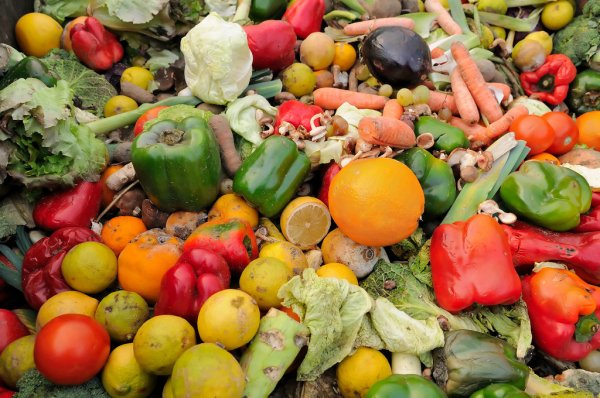December 16, 2020
By Lynda Kiernan, Global AgInvesting Media
Capital One has made its first impact investment through Capital One Ventures, the financial services’ venture arm, in Goodr, a food waste specialist that believes in order to remedy the food waste problem in America, it’s the supply chain ecosystem that must be fixed.
Goodr is working to unravel the dichotomy of the current situation where 80 million pounds of food ends up in landfills every year, while at the same time as many as 42 million people go hungry, and $40 million in tax benefits for businesses go unclaimed.
This exact same topic was examined by Adam Bergman, managing director of EcoTech Capital, in his article published by GAI News in April, COVID-19 Exposes Paradox of Simultaneous Food Shortages and Food Waste.
Bergman stated, “While most of the focus on food waste has been on the environmental impact, it is important to remember there also is a significant economic cost. ReFED estimates that U.S. consumers, businesses, and farms spend $218 billion annually, or 1.3 percent of GDP, growing, processing, transporting, and disposing of food that is never eaten.”
Prior to COVID-19 becoming our new reality, food waste was already a serious issue. At a time when one in seven Americans is food insecure, not only is tens of million of tons of food ending up in landfills, but another 10 million tons of food is left in fields discarded or unharvested each year.
Food waste accounts for 18 percent of cropland, 19 percent of all fertilizer, and 21 percent of freshwater, as well as 21 percent by volume in landfills, according to ReFED, a multi-stakeholder, non-profit comprised of influential leading business, foundation, non-profit, and government leaders committed to reducing food waste.
And COVID-19 is only compounding these challenges. The closure of restaurants, schools, stadiums, cruise ships, and parks have significantly cut demand. Although consumers are still eating, the demand chains have shifted – and as retail supermarket suppliers scramble to keep up, those supplying large-scale clients in the hospitality industry have lost their market. Meanwhile, these rapidly changing supply chains left farmers having to dump milk and plow under tens of million of pounds of perishable crops this spring and summer.
Goodr is one of the pioneers of using blockchain technology as a means to find workable solutions to this complex issue. Using the platform, Goodr provides organizations such as hospitals, airports, or event venues, a secure ledger to track and reduce food waste while also tracing surplus food from its source to the point of donation. It also provides users impact reports, real-time analytics, and a donation record to support charitable donation claims with the IRS.
This way, the company stated, edible food that meets quality standards can be delivered to those in need either directly or through third-party non-profits, and organic matter that isn’t edible can be delivered to composting facilities, farms, or biofuel facilities where it can be recycled or put to use as a feedstock.
All told, Goodr calls its system a “triple win solution” whereby surplus food gets to those in need, the organization’s bottom line is improved via charitable tax donations, and greenhouse gas emissions are reduced through less food ending in landfills.
“The benefits are powerful… not only can thousands of families enjoy healthy meals that require minimal (if any) prep, but millions of pounds of waste could be diverted from landfills, where they would decompose under trash and release methane (a greenhouse gas),” wrote Adam Boutin, partner at Capital One Ventures, in a Medium post announcing the investment. “For large companies, Goodr enables cost savings through more efficient ordering, and also automatically generates tax donation receipts and impact analytics.”
This investment in Goodr is only the beginning for Capital One Ventures, which will be focusing its capital commitments toward mission-driven businesses making change in the areas of environmental sustainability, financial wellness and inclusion, and the future of work.
“I, like many others, believe we’re entering a new era of corporate responsibility, gradually away from the shareholder absolutism that marked much of our recent history,” wrote Boutin. “As such, I am a firm believer that we are about to see a new generation of startups focused on “doing well by doing good”, or, generating long-term shareholder value through products that genuinely benefit humanity.”
– Lynda Kiernan is editor with GAI Media, and is managing editor and daily contributor for Global AgInvesting’s AgInvesting Weekly News and Agtech Intel News, and HighQuest Group’s Oilseed & Grain News. She is also a contributor to the GAI Gazette. She can be reached at lkiernan@globalaginvesting.com

Let GAI News inform your engagement in the agriculture sector.
GAI News provides crucial and timely news and insight to help you stay ahead of critical agricultural trends through free delivery of two weekly newsletters, Ag Investing Weekly and AgTech Intel.




